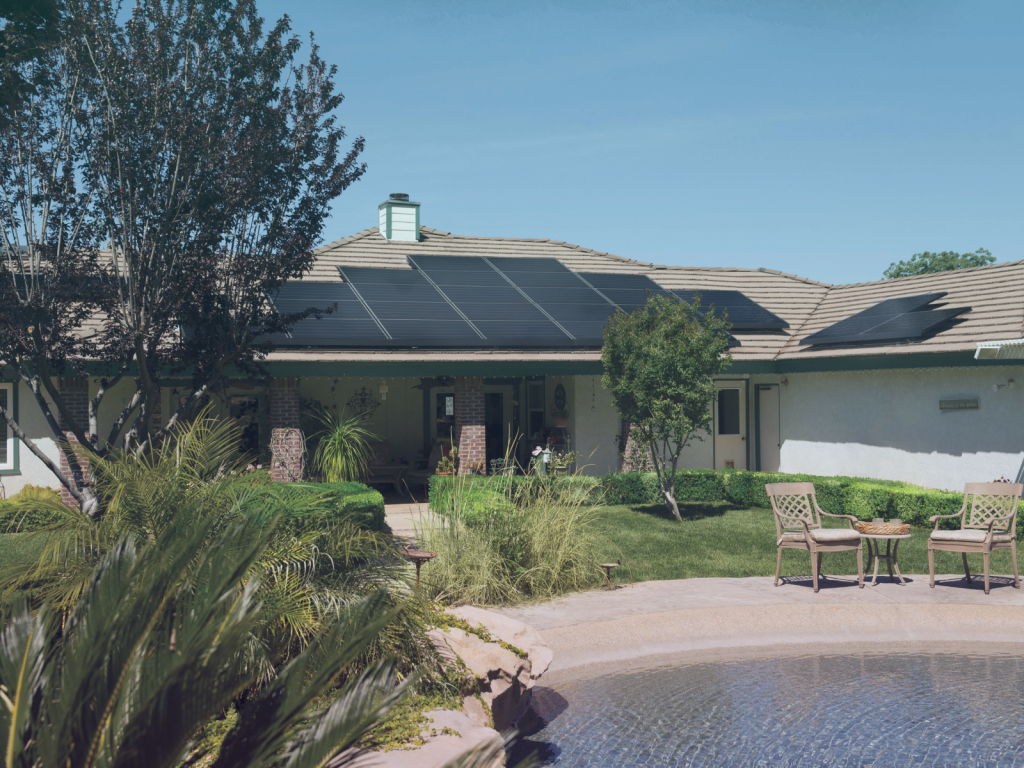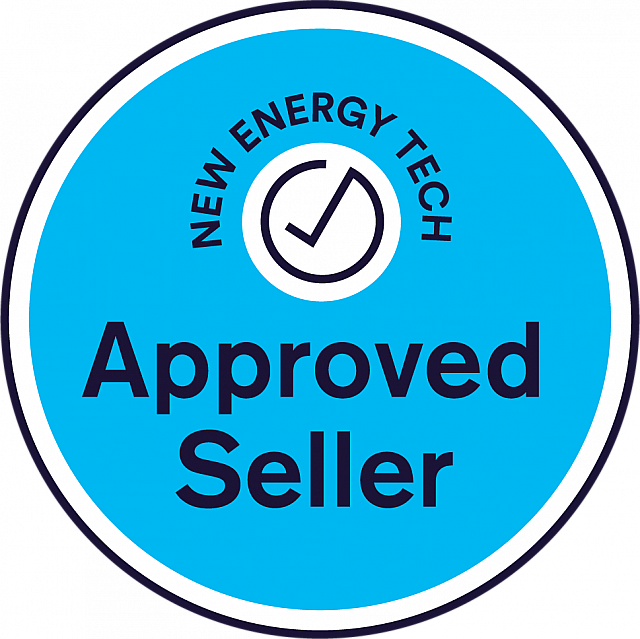Solar has recently been thrust into the limelight as Australians search for ways to dodge skyrocketing energy prices. But many people forget that solar panels and batteries aren’t just a short-term benefit –– they add long-term value to your property too. Here’s how.
Ongoing energy costs are becoming a key consideration during the homebuying process. And for very good reason!
When you buy a home, you’re not just committing to monthly mortgage repayments. You’re also taking on the ongoing cost of the power needed to maintain your family’s comfort and lifestyle. So it stands to reason that your quarterly electricity bill down the track will directly impact the size of the mortgage you can take on today.
As much as homebuyers may like to admire renovated kitchens, polished floorboards, and number of bedrooms – energy affordability is increasingly playing into property value. Why? Because people genuinely value access to affordable energy! In this day and age, we’ve got to.
Wild weather events like raging hot summers are becoming more frequent. A large portion of us are still spending considerable amounts of time at home, thanks to the lasting effects of the COVID-19 pandemic. And energy costs are rising to extreme heights amongst all this.
It makes sense that properties with sustainable features are demanding a premium. As solar panel and battery systems are a key way to boost a home’s energy efficiency, they’re becoming a highly sought after feature on the property market.
What makes a solar-powered home attractive to buyers?
It saves on energy costs
Clean, reliable energy supplied to your home day and night, without relying on the grid and big energy companies, is a major win for any homebuyer. Especially amidst the current energy crisis.
It increases borrowing potential and what you can afford to spend on a home
A home with solar panels and batteries will reduce the amount you’ll pay for electricity each month. With more room to spare in your household budget, you can afford to put more towards your mortgage.
Here’s an example:
If a solar-powered home saves you $300 per month on your electricity bills, that’s potentially $300 you could afford to service your new mortgage with each month, meaning you could potentially afford to buy a bigger property.
It offers the full range of solar benefits
Solar power and battery storage can help reduce the likelihood of blackouts, and will future-proof your property against an ageing grid and fossil fuel power plants that are increasingly breaking down.
It also gives you access to Virtual Power Plant (VPP) technology, which means you can earn an income by selling your excess power back to the grid for a premium!
It contributes to Australia’s clean energy transition
The 2022 Federal Election revealed that climate change is on many Australians’ minds. When you own a house that produces renewable energy, you’re a part of the changing landscape of our energy production. And that feels pretty good!
Plus, if you join a VPP you’re helping to directly offset gas power plants.
Does solar actually increase the value of a property?
The research certainly points to it.
Energy efficient homes in Australia have been shown to fetch a premium price, with buyers paying up to 17 per cent more for a sustainable home. While rainwater tanks, insulation, and build quality all play into a property’s overall sustainability rating, solar panels and battery storage is one of the most efficient ways to replace your energy needs and decrease the cost of powering your home.
By saving significantly on your monthly energy costs, you can afford a larger mortgage, which can get you a bigger and better house!
If you’re selling a solar-powered home, you can expect to:
- Sell for a premium price – The Domain Sustainability in Property Report 2022 found that houses with sustainable features such as solar panels sell for a median price of $125,000 more than those without them. And units sell for around $72,750 more if they have solar.
- Attract more interest, and sell faster – The report also reveals that sustainable properties attracted more buyer interest, and sold faster than their non-energy efficient counterparts. So it may be easier to sell your home if it’s equipped with solar.
- Be one step ahead if legislation changes – While it isn’t currently mandatory to disclose your property’s energy star rating, there have been calls to make it so. If the Voluntary Residential Efficiency Scorecard were to become mandatory in future, you’d be ahead of the game. Your solar system would significantly boost your home’s overall rating, making your property stand out in the market.
Tips for selling a solar-powered home
1. Add the cost of your system to your asking price
Solar was once a long-term investment for people who’d found their ‘forever home’. Now, a complete solar panel and battery system is accessible to most homeowners, even if you plan to move before you pay the system off!
If you’re considering signing up to a payment plan to get solar, don’t be dissuaded by the fact that you might sell your house before your payments finish. There are several ways you can hand it over to the new owner while still adding its value to your overall asking price.
Here are your options:
- If you own the system outright – Simply decide how much your solar system adds to your asking price.
- If you financed your system via a loan – Pay off the remainder of the loan and add the value of the system to your asking price. The improved home value is likely to be more than what you’ll pay off.
- If you have a Powow PPA (Power Purchase Agreement) in place – You can either transfer the monthly payment to the new homeowner, or you can buy your system out and wrap it into the asking price of the home.
2. Word up your real estate agent about the value of solar
A 2020 study from Energy Victoria showed that many real estate agents are clueless when it comes to sustainable housing features. 91 percent of agents, for example, couldn’t identify a property’s energy rating. And 46 per cent couldn’t identify any energy-saving features on a property they were selling. (ANY!)
It’s possible that agents simply don’t understand the value of energy features. Solar panels and batteries virtually translate to a home without an electricity bill – a pretty decent selling point, we’d say. So be sure to stress this to your agent. It’s their job to spruik your property’s features in online property listings, and in conversations with potential buyers.
3. Plan ahead for your next home
If you’ve been enjoying the benefits of solar power in your current home, you’ll probably miss it if you move into a house without solar power!
Because you know the value of solar, keep this in mind when you’re searching for a new property, and factor in the potential cost of installing solar if needed. You can use our Online Solar Design Tool to get an estimate of what your costs might be in a potential new home.
Should I add solar to my house now if I’m looking to sell in the next few years?
Absolutely. Whether you sell your house next year, in five years, or in 20 years’ time, solar will always be attractive to a buyer. And in the meantime, you get to benefit from low or no energy bills.
Solar is a valuable sustainability feature on any property, not only saving you money on today’s electricity bill, but adding a premium to your house price when it comes time to sell.




